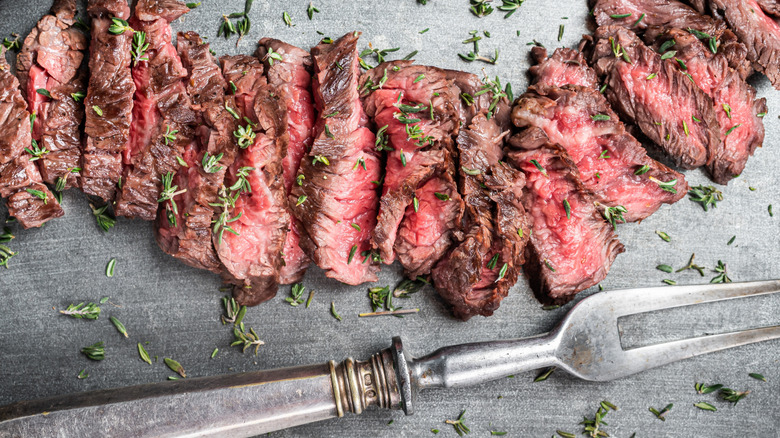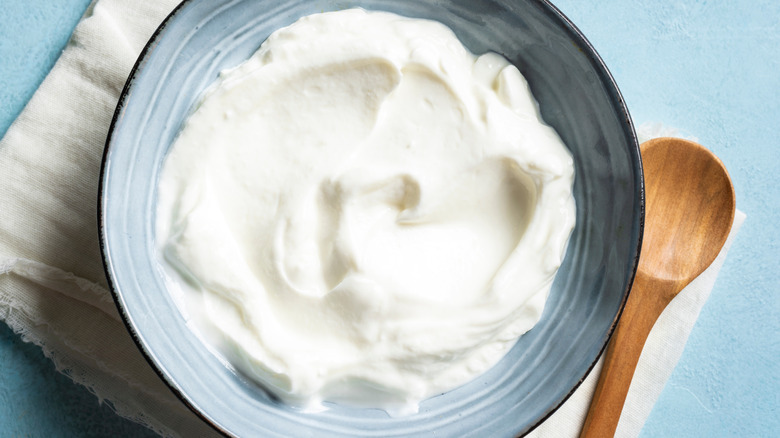How Yogurt Tenderizes Even The Toughest Steaks
If you bring home a lean cut like flank or skirt steak, it's natural to want to marinate it for a little while before putting it on the grill. Your instinct might be to reach for some lemon, vinegar, white wine, or mustard — all great choices for tenderizing tough cuts of meat. But there's a frequently ignored option that can make your toughest steaks even more tender: yogurt.
There is a science to marinating meat. A delicious marinade provides steak with a beautiful flavor, but a marinade's first task is to tenderize the meat by breaking down its proteins through a process called "denaturing." To do that, marinades need to contain some form of acid, like the citric acid in lemons or the acetic acid in vinegar. But yogurt also contains an acid -– lactic acid –- which can denature the proteins. And it does so slower and more gently than other acids. That subdued action also makes yogurt an ideal marinade to use for a longer period. Other acids can turn meat mushy if left on too long.
Lactic acid and calcium do the work
Lactic acid isn't the only tenderizer in yogurt, though. Other components of yogurt that make it work so well as a meat tenderizer are calcium and bacteria. Calcium is thought to activate the enzymes that break down collagen, one of the proteins in meat. The bacteria used to ferment yogurt are live and active cultures, which can also break down proteins if the yogurt hasn't been heat-treated, which would kill the cultures.
In addition to softening the texture of meat, yogurt also adds depth of flavor. Being able to marinate over time gives the herbs and spices you've added to the mixture an opportunity to infuse into the meat. Additionally, yogurt coats the outside of the steak, caramelizing in a unique way when you cook the meat. Instead of the hard, snappy crisp you get from the cooked sugar you find in most marinades, the yogurt provides a flaky crispness that absorbs smoke a high-heat sear provides.
A marinade is also a convenient way to use up yogurt on the verge of going bad. Any amount you have on hand makes a worthwhile addition. But if possible, use a half cup of yogurt for every pound of meat. With thicker yogurts, add a little milk, water, or lemon juice to thin it out. After a spin over high heat, you may think twice before you reach for any other tenderizers again.

